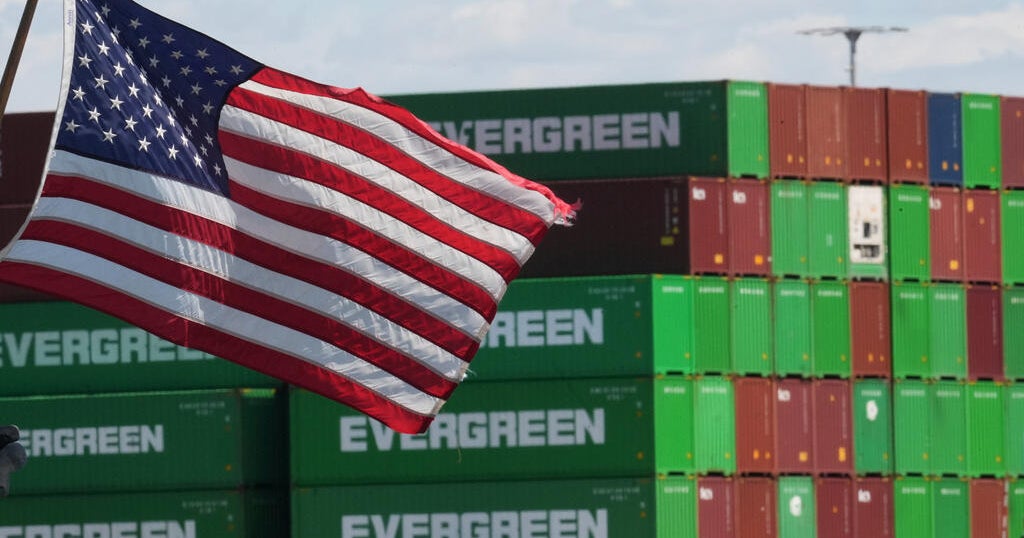Stocks are rebounding Tuesday after investors suffered a three-day sell-off that wiped out trillions in market value amid anxieties about the economic impact of President Trump’s wide-ranging reciprocal tariffs.
The S&P 500 index surged 141 points, or 2.8%, to 5,203.65 in early morning trading. The Dow Jones Industrial Average jumped 2.9%, while the tech-heavy Nasdaq composite index climbed 3.1%.
The sell-off began on April 3, the day after Mr. Trump unveiled tariffs on imports from almost every nation, on top of a number of previously announced import duties targeting the auto, steel and aluminum industries, among others. Wall Street economists say the tariffs are likely to drive up inflation because they’ll largely be passed onto consumers in the form of higher prices, which could stall U.S. economic growth and increase the risk of a recession.
CBS News 24/7 is answering your questions about tariffs in a special airing on Wednesday at 6 p.m. ET. Download the CBS News app on your phone or connected TV to watch it live.
But some investors are holding out hope that the tariffs could be pared back, with that optimism bolstered on Tuesday morning by Treasury Secretary Scott Bessent, who told CNBC that the Trump administration is negotiating tariffs with a number of countries.
“I think we can end up with some good deals,” Bessent said. “And I actually think, as I said that over the weekend, President Trump has maximum negotiating leverage right here, right now, and I think it would be a mistake for anyone to think otherwise.”
Tuesday’s rebound could also be due to investors seeking to buy stocks after they’d been knocked down, seizing the opportunity to buy shares at lower costs, some analysts noted. But the tariffs still remain in place, threatening the long-term growth of U.S. businesses, they added.
“[T]here’s a big swing in the trade/tariff narrative back toward the ‘it’s a negotiation’ end of the spectrum, but hopefully after everything that’s happened over the last several months, investors don’t embrace this too aggressively,” said Adam Crisafulli of Vital Knowledge in an April 8 research note.
He added, “The tariff overhang isn’t going away, even if some of the reciprocal numbers from the April 2 chart wind up getting trimmed a bit, and the huge disruptions to global trade will have a substantially negative effect on growth (especially since they hit at a time when the economy was already slowing), while pushing inflation higher.”
Corporate earnings season
Corporate earnings season kicks off this week with Delta Air Lines reporting on Wednesday and major U.S. banks offering up their latest results on Friday. The airline sector, which had been forecasting a strong 2025, has been one of the hardest hit during Trump’s tariff rollout.
Banks report their latest quarterly earnings on Friday, but most of the attention likely will be on their forecasts amid the rising global trade tensions ignited by Trump’s tariffs.
On Thursday, the government posts its latest inflation data, which could play into the Federal Reserve’s next interest rate decision. Many economists have raised their odds of a U.S. recession because of the tariffs and suggest the Fed may have to step in and cut rates to help spur economic growth.
contributed to this report.
(Except for the headline, this story has not been edited by PostX News and is published from a syndicated feed.)

